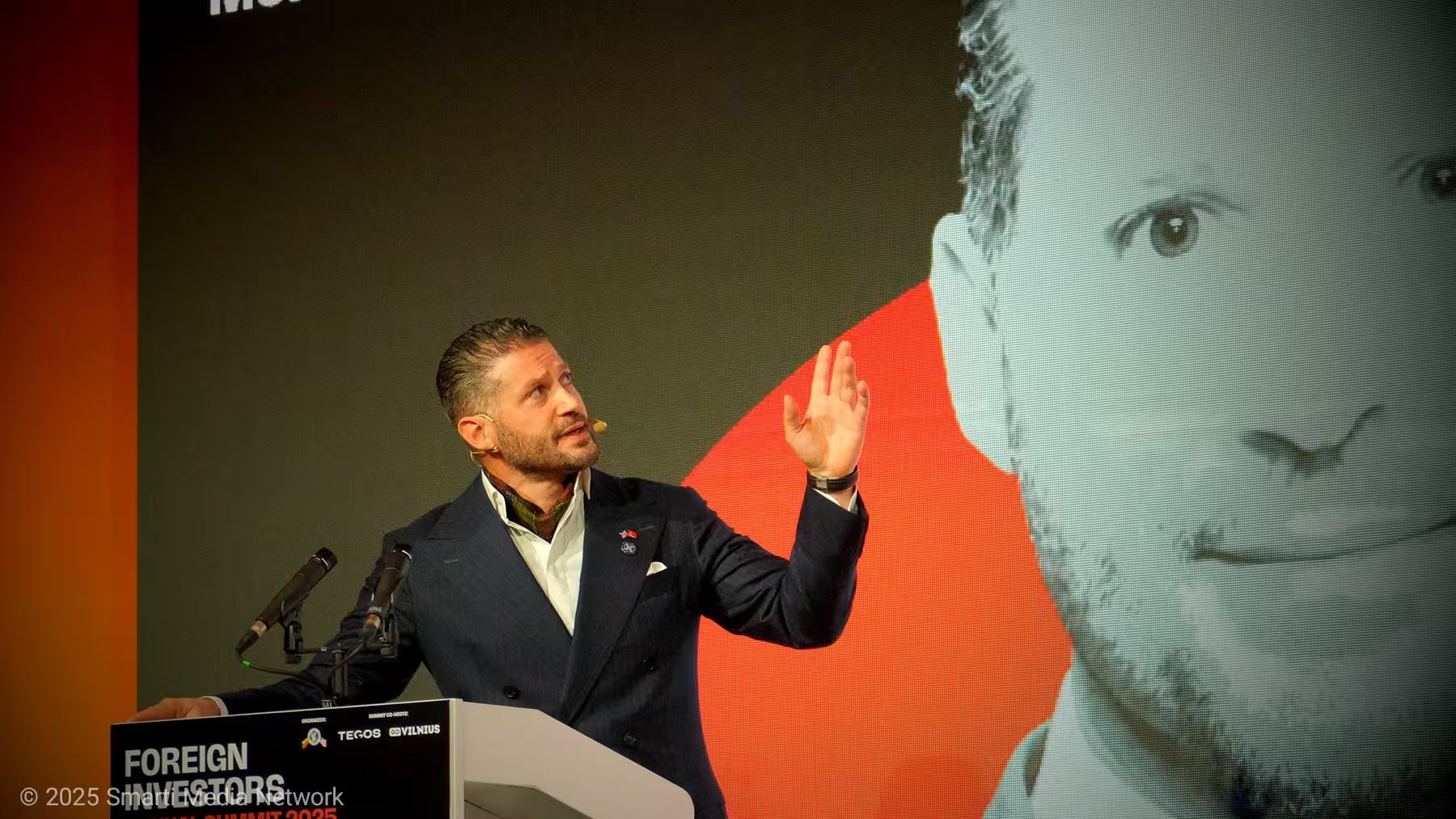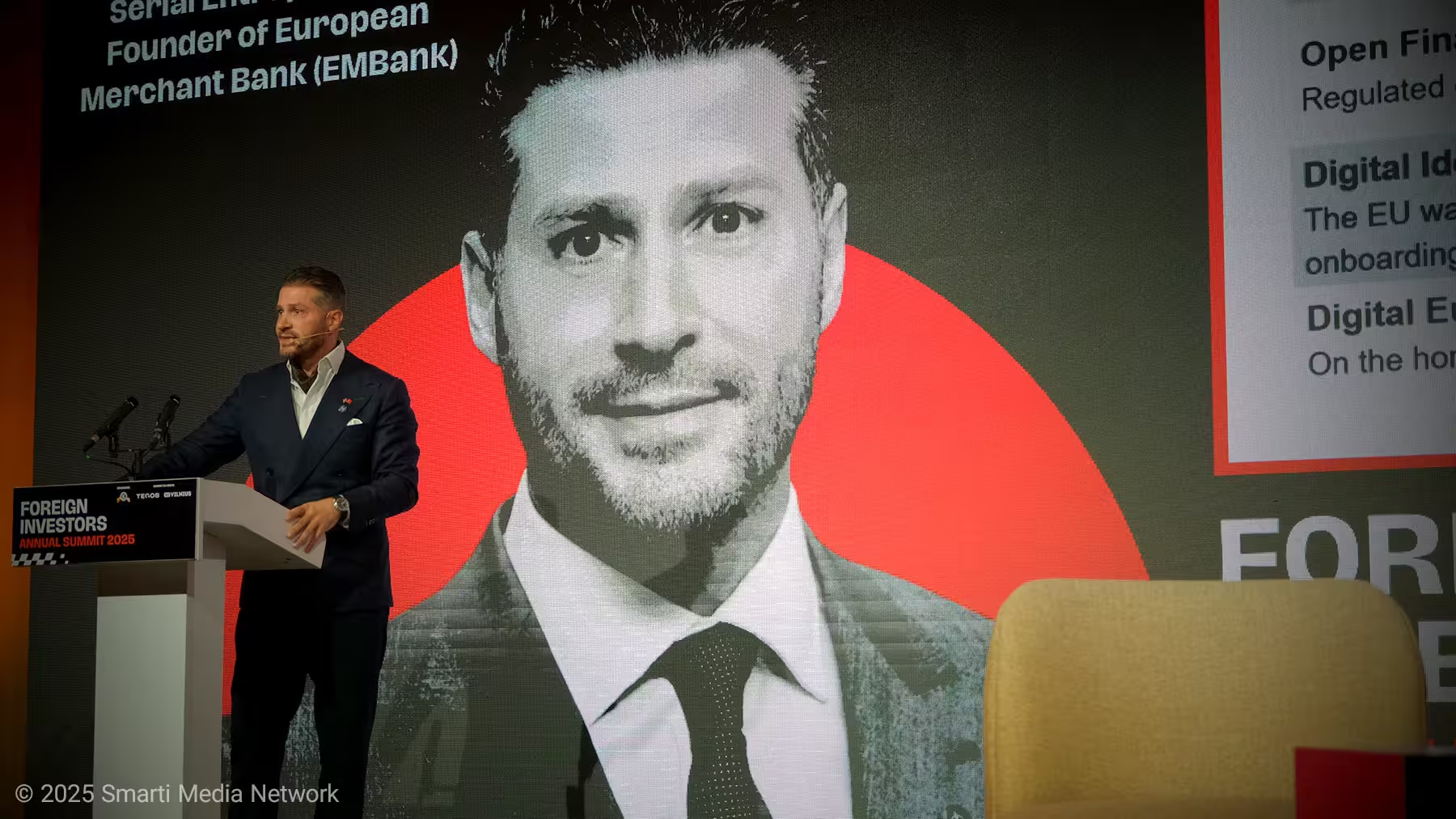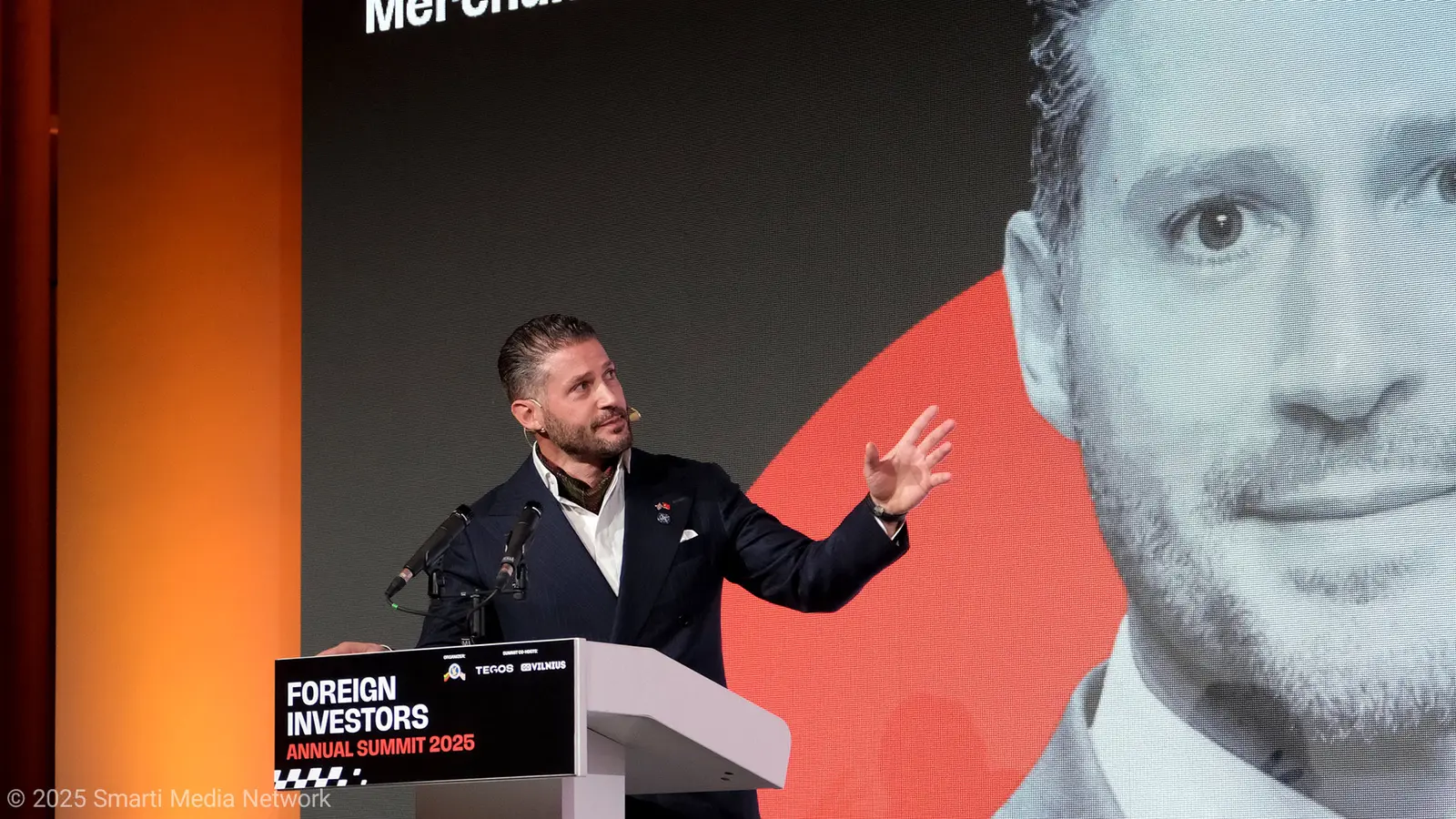6 Minutes
At the Foreign Investors Annual Summit 2025, serial entrepreneur Dr. Ozan Ozerk outlined a roadmap for staying competitive in Europe’s fast-changing financial technology landscape
Vilnius, Lithuania — At the closing keynote of the Foreign Investors Annual Summit 2025, hosted by the American Chamber of Commerce in Lithuania (AmCham Lithuania), Dr. Ozan Ozerk — a Norwegian-Cypriot serial entrepreneur and founder of multiple global financial institutions including European Merchant Bank — delivered an insightful address on the future of fintech, open finance, and digital transformation.
In a speech that combined global perspective with practical advice, Ozerk urged Lithuania’s business and policy leaders to balance innovation with realism, remain regulatory pioneers, and build trust-centered financial ecosystems that attract sustainable investment.
A Global Perspective from a Fintech Pioneer
Dr. Ozerk, who has lived and built businesses across Norway, the US, Europe, and Asia, opened by praising Lithuania’s rise as a European fintech powerhouse. Over the past decade, Lithuania has become one of the most dynamic licensing environments in the EU, hosting a dense network of payment institutions (PIs) and electronic money institutions (EMIs) under the Bank of Lithuania’s regulatory umbrella.
“What Lithuania has achieved in the last 5–10 years is remarkable,” Ozerk said. “Opening the central bank’s infrastructure to private operators was unthinkable a decade ago — now it’s a model others are watching.”
However, he cautioned that success must not breed complacency. As technology, regulation, and global competition evolve, clarity and consistency are the new gold standards for attracting capital and talent.

Key Trends Reshaping the Financial Sector
Ozerk’s keynote focused on four transformational trends reshaping European and global finance — and the strategic actions Lithuanian businesses should take to stay competitive.
1. Instant Payments and SEPA Modernization
Europe’s SEPA Instant Credit Transfer (SCT Inst) scheme is becoming the new norm, enabling real-time euro transactions across member states. Ozerk emphasized that adopting instant payments isn’t optional — it’s a competitive necessity.
“If your clients can move money in seconds, but your system takes hours, you’re already losing the race,” he said.
Yet, he warned that speed amplifies risk. Institutions implementing instant payment rails must invest equally in:
Instant refund capabilities
Advanced transaction monitoring
Fraud detection and AML compliance
Failing to do so, he cautioned, could expose businesses to operational and reputational damage.
2. From Open Banking to Open Finance
Europe’s financial sector is shifting from open banking (data access to current accounts) toward open finance, where customers can share holistic financial data — including savings, investments, insurance, and credit profiles.
This expansion will enable:
Personalized financial products
Integrated financial dashboards
Competitive pricing and product bundling
Ozerk noted that businesses that embrace open finance early will unlock new revenue streams and customer insights, while those that ignore it will fall behind.
“Open finance is not a trend — it’s the infrastructure of the next decade.”

3. Digital Identity and Trust Infrastructure
As digital interactions expand, digital identity (eID) systems are becoming essential for KYC, onboarding, and fraud prevention.
The EU Digital Identity Wallet, set to launch across member states, will allow consumers to securely prove identity and authorize transactions online.
Ozerk urged Lithuanian businesses to integrate eID solutions early, reducing friction and cost in compliance-heavy industries like finance, travel, and e-commerce.
“Friction kills conversion. With eID, we can combine compliance with convenience.”
4. Blockchain, Crypto, and New Regulations
Addressing blockchain and digital assets, Ozerk acknowledged initial regulatory confusion in both the EU and the US, but highlighted rapid convergence.
The EU’s MiCA (Markets in Crypto-Assets) framework and the US Genius Act are paving the way for regulated crypto adoption and blockchain-based financial services.
“Ignoring blockchain is not an option. Even if you don’t offer crypto, blockchain will shape your treasury, payments, and cross-border settlements.”
He predicted a future where instant settlement networks in Europe (SEPA) and the US (FedNow) are bridged by blockchain-based rails, enabling near-instant international transactions between euro and dollar zones.

Artificial Intelligence: Promise and Perspective
Turning to AI, Ozerk urged pragmatism over hype:
“AI today is mostly advanced data aggregation and pattern recognition. It’s powerful, but not omniscient.”
He warned that AI adoption must be paired with responsibility, data governance, and ethical oversight. Countries like China and the US are heavily investing in AI infrastructure, and Europe must find its own balance between innovation and privacy standards (like GDPR).
“We don’t need to fear AI — but we do need to prepare for it. Adaptation is survival.”
Lithuania’s Unique Advantage — If It Stays the Course
Ozerk praised the Bank of Lithuania’s pioneering model, which allows licensed institutions to access central bank infrastructure — a privilege rare elsewhere in Europe. This regulatory openness has made Lithuania a sandbox for fintech innovation and a magnet for foreign startups seeking EU access.
Yet, he stressed that regulatory clarity must remain consistent. Political shifts or policy uncertainty could erode investor confidence and drive talent elsewhere.
“Capital and people are mobile. The policies that made Lithuania a fintech hub must be protected.”

Key Takeaways for Businesses
Adopt instant payments — but match speed with security and refund mechanisms.
Prepare for open finance — integrate across savings, investments, insurance.
Leverage digital identity (eID) — simplify KYC, cut onboarding costs.
Understand blockchain — even if you’re not in crypto, its rails will matter.
Build AI literacy — focus on practical applications and compliance.
Engage with regulators — maintain a dialogue to shape realistic policies.
A Final Word: Innovation with Realism
Dr. Ozerk closed with a call for “sober innovation” — embracing new technologies not as silver bullets, but as tools that require discipline.
“Innovation without responsibility is chaos. But innovation with purpose — that’s how you build trust, attract capital, and scale globally.”
He invited businesses to partner with European Merchant Bank, which operates across Europe, offering banking, payments, and advisory support to companies navigating the evolving fintech landscape.


Leave a Comment